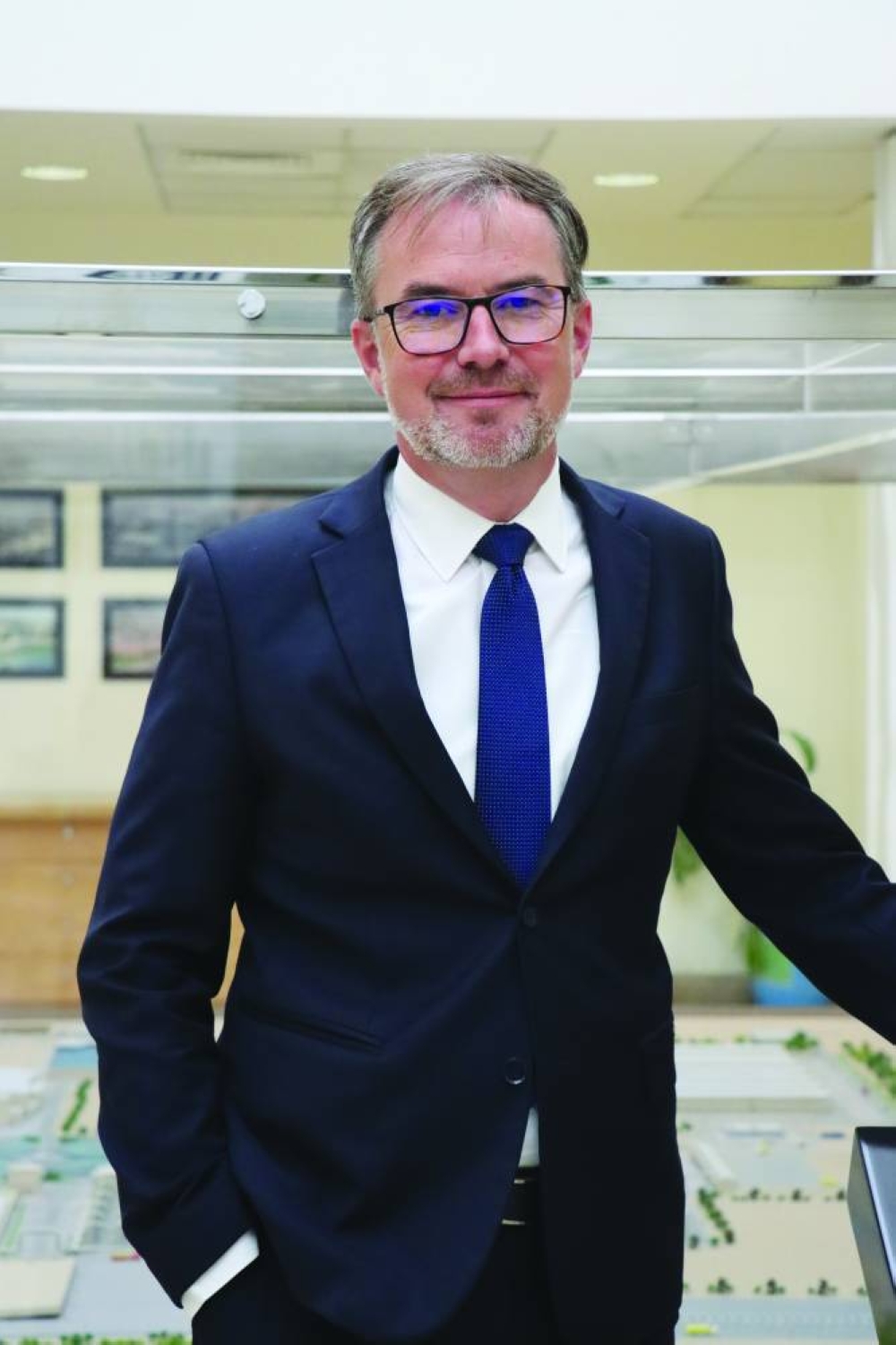The Green Up project, undertaken by Veolia Qatar, has transformed Doha's landscape, making the country greener with a "significant embellishment" of the urban environment, according to a top official of the French environmental services company.
"A noticeable increase in biodiversity has been observed, and the environmental forest that we maintain at the Doha North Plant is its emblematic representation," Laurent Gestin, chief executive officer, Veolia Qatar told Gulf Times in an interview.
He said the more than 90,000 trees it represents (28 species planted on 750 hectares) have become a sanctuary where natural life has resumed its rightful place, welcoming more than 30 different species of birds each year, many of which are migratory.
The sustainable solutions, which are deployed every day in Qatar, are directly contributing to the circular economy, he said, highlighting its 10-year framework agreement signed in 2020 between Veolia and the public works authority (Ashghal).
On the agreement, he said this (Green Up) project aligns with the desire and ambition of Qataris for increased sobriety and frugality, as Veolia's ongoing efforts in energy efficiency and operational excellence have already allowed for substantial reductions in the carbon footprint.
Veolia's sanitation services, available 24/7, allow for the complete depollution and regeneration of valuable water resources (99.7% of the municipal wastewater) and avoid the very significant greenhouse gas (GHG) emissions that would have been generated if the same volumes of water had been produced by desalination of seawater, he said.
"This project has already profoundly transformed the landscape of Qatar, making the emirate greener with a significant embellishment of the urban environment," he added.
On solid waste management, Gestin said it aims to accelerate the development of alternative energy sources, and thus, the production of low-carbon local energy, through the capture and recovery of biogas from landfills, and the conversion of municipal and hazardous waste into energy resources.
"In a virtuous circular waste economy, it is possible to consider the conversion of municipal and hazardous waste into energy resources; generally steam for local industrial use and electricity to power the national electricity grid," he said.
Qatar has already deployed impressive photovoltaic projects but the further development of additional alternative energy sources would definitely position the country among the pioneering countries mobilised against climate change, according to him.

Laurent Gestin

